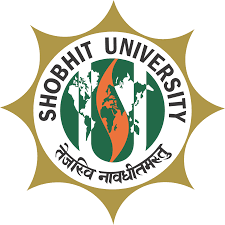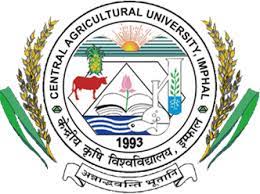Students interested in pursuing a Ph.D. in Agriinformatics are encouraged to apply for a scholarship as soon as possible. Once selected, scholarship seekers should pay the required registration fee and pay a course fee. Admission to the program is limited to a predetermined number of students. Once accepted, these students may work in several fields related to agriculture.
In the past, agricultural informatics was limited to information management activities that benefited agricultural producers. However, in recent years, this discipline has expanded beyond agricultural information management to include pre-and post-production processes. Many major universities worldwide offer Ph.D. programs in the field, from developing nations to major international universities. Agriinformatics is a dynamic field that includes numerous specializations and nomenclatures.
As a doctoral degree, agricultural informatics is focused on the use of information technology for agricultural production. It is an interdisciplinary field that evolved from the fields of Agricultural Science and Information Science. IT principles have been widely used across different fields, including agriculture. Since the two disciplines are interconnected, Agricultural Informatics has grown into a distinct discipline. It provides technological and information support for agriculture.
The program is designed to prepare students for a career in agricultural and environmental science. The curriculum builds on the candidate's previous coursework and fosters independent, creative thinking. This program also focuses on the applicant's educational experience. There is a requirement for applicants to have professional work experience in an agricultural career field. The course aims to equip graduates with the tools and knowledge necessary to meet these challenges.
Ph.D. in Agriinformatics Eligibility
Candidates who want to take admission in Ph.D. must have a post-graduate degree in Agriinformatics and its relevant discipline with at least 55% marks from a recognized university and must have passed the national level entrance examination or university level entrance examination. National level entrance exams like UGC NET / UGC CSIR NET / GATE / SLET or University entrance exams consist of written tests and personal interviews.
The Benefits of a Ph.D. in AgriInformatics
A Ph.D. in Agriinformatics can lead to a variety of careers. Graduates can work in the food and agriculture industries, government regulatory agencies, or academia. They can also teach university students and conduct research. Many schools offer Ph.D. courses online. You can find a program near you to pursue your education. Here are the benefits of pursuing a Ph.D. in Agriinformatcs.
A Ph.D. in Agriinformatics can help you advance your career in a field that is continually evolving. As an agricultural professional, you can help create new technologies that will improve the way we farm. The field of agricultural engineering has many fields of specialization, and you can apply your skills in a variety of settings. AgriInformatics is an ideal field to explore if you are interested in the latest developments in farming.
A Ph.D. degree allows you to stay on the leading edge of science and technology. You can apply your skills in many fields, such as biotechnology, agribusiness, or even finance. As an economist, you will be able to make an impact on the global economy. A Ph.D. in AgriInformatics will help you advance your career. You can make your dream come true if you work hard enough.
The Career Opportunities of a Ph.D. in Agriinformatics
A Ph.D. in Agriinformatics will allow you to work in the fields of agriculture, forestry, animal production, and environmental management. This degree will provide you with extensive knowledge of crop, livestock, and environmental science, and you'll also develop a good working knowledge of math. Many employers accept applications from graduates of all disciplines, but getting relevant work experience will increase your chances of getting a job after graduation. You can look for relevant work during your vacations, or ask a local commercial farm for extra work. You can also participate in voluntary projects in your local area to learn more about the agricultural industry.
The demand for qualified agricultural scientists is high, with employment prospects expected to increase by 6% over the next decade. There are plenty of retiring scientists in the field, so a Ph.D. in Agriinformatics will provide you with an excellent education and the necessary skills to succeed. You can expect to earn a salary of $73,040 a year, according to the U.S. Bureau of Labor Statistics.
The field of agriculture is vast and the career opportunities for graduates vary from industry to industry. Most are in research and development, as well as agribusiness sales and extension positions. Others choose to work as a farmer, range scientists, or a manager. And there are also some academic jobs. Some agricultural biologists go into academia, where they can teach and research while others become managers and proprietors.
The Future Scope of Ph.D. in Agriinformatics
The Ph.D. program in Agriinformatics focuses on the science of plant production, from small-scale to large-scale farms. Students learn how to manage a farm and apply the knowledge gained to other areas. The Ph.D. program consists of a dissertation and is a hands-on program. The course is three years long and requires extensive field experience. Upon completion of the course, students can choose from a number of specializations.
The Ph.D. program covers a wide range of topics. These include food production, forestry, animal science, conservation, and more. In addition to this, students can tackle the challenge of meeting global food needs. Applicants may wish to study abroad in order to gain firsthand experience of different growing environments. A degree in agriculture can also give students a competitive edge in the job market.
The Ph.D. in AgriinformatICS is a hands-on program. Agricultural engineers study the design, construction, and management of farming machinery. They seek new ways to improve the efficiency of farming equipment. Agricultural engineers also seek ways to minimize pollution on large farms. Some even develop new biofuels to replace gasoline sustainably. Agriinformatics is the science behind the production of food.
Ph.D. Research Programme duration
The Ph.D. in Agriinformatics course is a minimum of 3 years and a maximum of 5 years in duration. This depends on the university offering the course.
Fees for research program for Agriinformatics
The average fee for Ph.D. in Agriinformatics degree is between INR 50000 and INR 500000.
 5 Years
5 Years
 PhD
PhD
 Research
Research














 back
back